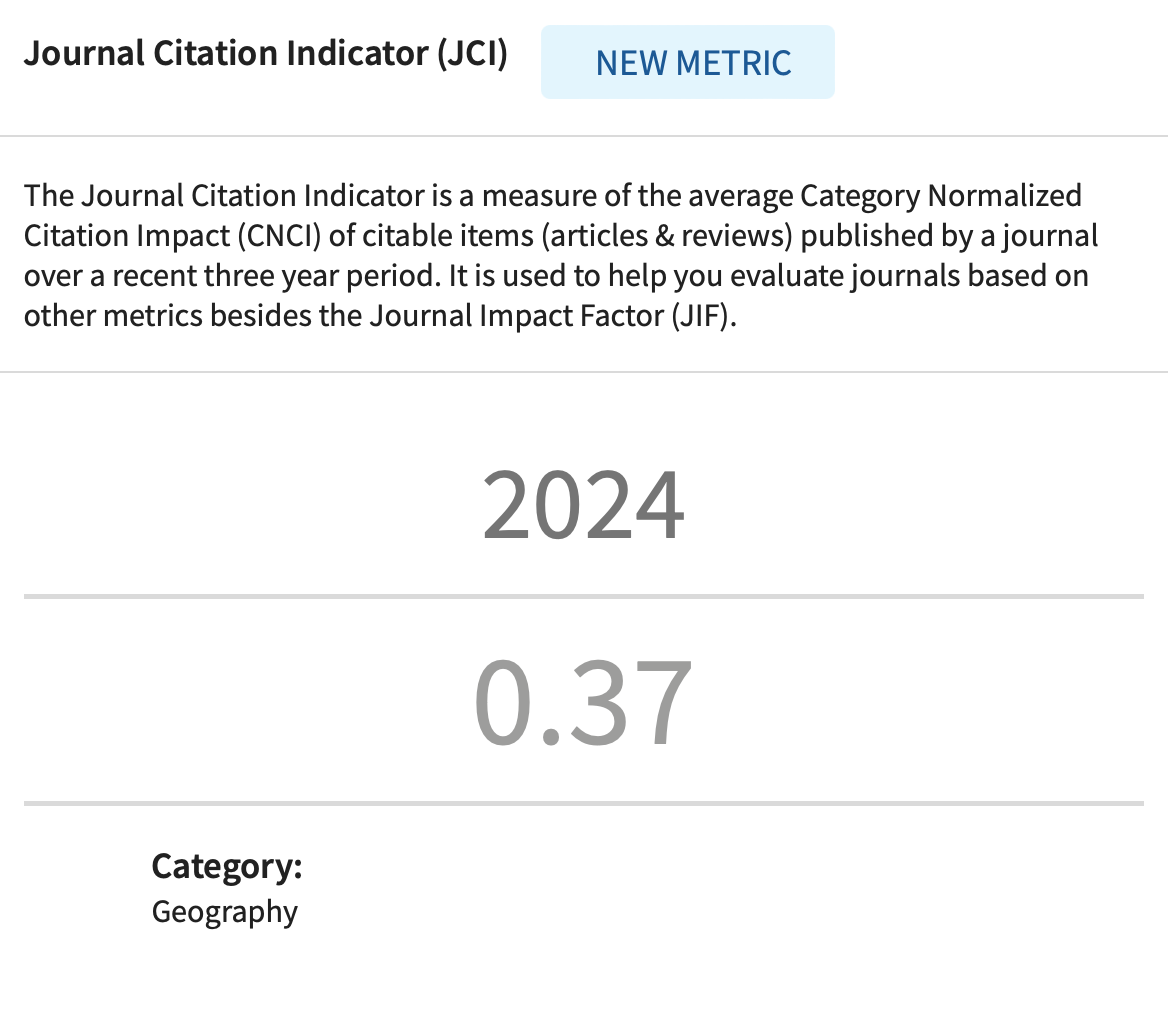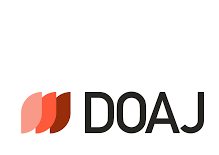ESTIMATING THE ECONOMIC VALUE OF THE ECOTOURISM DESTINATION: THE CASE OF TRA SU MELALEUCA FOREST NATURAL PARK IN VIET NAM
DOI:
https://doi.org/10.2298/IJGI2303379HKeywords:
ecotourism, travel costs, visitors, Tra Su Melaleuca Forest, Viet NamAbstract
In this article, the application of the Individual Travel Cost Method (ITCM) aims at providing a deeper insight into visitors’ preferences and their expenses on marketed and non-marketed services when travelling to the Tra Su Melaleuca Forest Natural Park, an ecotourism destination in An Giang Province of Viet Nam. The empirical findings from the survey of 237 visitors in 2022 showed that the frequency of trips to this recreational site was 1.3 per year on average and relied strongly on the travel costs. Additionally, the estimate of tourism revenues for 2022 of this site was 82,3 billion Viet Nam Dong (VND; equivalent to 3,5 million USD). Meanwhile, its economic value calculated by the ITCM application reaches 206,2 billion VND (or 8,8 million USD). It is obvious that a greater economic value over the monetary amount of revenue also raises several ideas of managerial implications dedicated to the recreational site. It includes building a marketing team for developing recreational services and digital marketing performance, expanding tour services like transportation, lodging, local guides. Finally, enabling local people to engage in dialogues, decision-making, and interest shares is also necessary for the sustainable development of ecotourism.
Article metrics
References
An Giang Provincial People's Committee Portal. (2023). An Giang tổng kết hoạt động ngành Văn hoá, Thể thao, và Du lịch năm 2022 và triển khai phương hướng, nhiệm vụ năm 2023 [An Giang provincial summary on the performance of Culture, Sports, and Tourism industry in 2022 and planning orientation, mission for 2023]. https://angiang.gov.vn/wps/wcm/connect/an+giang+portal-vi/sa-tintuc/an-giang-tong-ket-hoat-dong-nganh-van-hoa-the-thao-va-du-lich-nam-2022-va-trien-khai-phuong-huong-nhiem-vu-nam-2023
Arinta, D., Sumarmi, Budijanto, & Susilo, S. (2023). Development of integrated and sustainable community based eco-tourism on Sipelot beach, Indonesia. GeoJournal of Tourism and Geosites, 46(1), 19–26. https://doi.org/10.30892/gtg.46102-996
Blaine, T. W., Lichtkoppler, F. R., Bader, T. J., Hartman, T. J., & Lucente, J. E. (2015). An examination of sources of sensitivity of consumer surplus estimates in travel cost models. Journal of Environmental Management, 151, 427–436. https://doi.org/10.1016/j.jenvman.2014.12.033
Brown, F., & Hall, D. (2008). Tourism and Development in the Global South: the issues. Third World Quarterly, 29(5), 839–849. https://doi.org/10.1080/01436590802105967
Cheung, L. T. O., & Jim, C. Y. (2014). Expectations and willingness-to-pay for ecotourism services in Hong Kong’s conservation areas. International Journal of Sustainable Development & World Ecology, 21(2), 149–159. https://doi.org/10.1080/13504509.2013.859183
Ezebilo, E. E. (2016). Economic value of a non-market ecosystem service: an application of the travel cost method to nature recreation in Sweden. International Journal of Biodiversity Science, Ecosystem Services & Management, 12(4), 314–327. https://doi.org/10.1080/21513732.2016.1202322
Fennell, D. A. (2020). Ecotourism. Routledge.
Hellerstein, D. M. (1991). Using Count Data Models in Travel Cost Analysis with Aggregate Data. American Journal of Agricultural Economics, 73(3), 860–866. https://doi.org/10.2307/1242838
Hill, R., Loomis, J., Thilmany, D., & Sullins, M. (2014). Economic Values of Agritourism to Visitors: A Multi-Destination Hurdle Travel Cost Model of Demand. Tourism Economics, 20(5), 1047–1065. https://doi.org/10.5367/te.2013.0323
Huong, L. H., Thuy, B. L., & Phuong Linh, N. T. (2020). Promoting Participation in Local Natural Resource Management through Ecological Cultural Tourism: Case Study in Vam Nao Reservoir Area, An Giang Province, Vietnam. Journal of Asian and African Studies, 55(6), 863–879. https://doi.org/10.1177/0021909620935426
Hwang, K., & Lee, J. (2018). Antecedents and Consequences of Ecotourism Behavior: Independent and Interdependent Self-Construals, Ecological Belief, Willingness to Pay for Ecotourism Services and Satisfaction with Life. Sustainability, 10(3), Article 789. https://doi.org/10.3390/su10030789
Iarossi, G. (2006). The Power of Survey Design: A User’s Guide for Managing Surveys, Interpreting Results, and Influencing Respondents. The World Bank.
Khanh, P. T., Vinh, N. P., & Ngoc, T. T. H. (2021). An Evaluation of The carbon stocks of The Tra Su Cajuputi Forests in An Giang Province of Southern Vietnam. European Journal of Applied Sciences, 9(3), 37–45. https://doi.org/10.14738/aivp.93.10145
Leh, F. C., Mokhtar, F. Z., Rameli, N., & Ismail, K. (2018). Measuring Recreational Value Using Travel Cost Method (TCM): A Number of Issues and Limitations. International Journal of Academic Research in Business and Social Sciences, 8(10), 1381–1396. http://dx.doi.org/10.6007/IJARBSS/v8-i10/5306
Liu, W.-Y., Chen, P.-Z., & Hsieh, C.-M. (2019). Assessing the Recreational Value of a National Forest Park from Ecotourists’ Perspective in Taiwan. Sustainability, 11(15), Article 4084. https://doi.org/10.3390/su11154084
Pablo-Romero, M. d. P., & Molina, J. A. (2013). Tourism and economic growth: A review of empirical literature. Tourism Management Perspectives, 8, 28–41. https://doi.org/10.1016/j.tmp.2013.05.006
Parsons, G. R. (2017). Travel Cost Models. In P. A. Champ, K. J. Boyle, & T. C. Brown (Eds.), A Primer on Nonmarket Valuation (pp. 187–233). https://doi.org/10.1007/978-94-007-7104-8_6
Purwoko, A., Nurrochmat, D. R., Ekayani, M., Rijal, S., & Garura, H. L. (2022). Examining the Economic Value of Tourism and Visitor Preferences: A Portrait of Sustainability Ecotourism in the Tangkahan Protection Area, Gunung Leuser National Park, North Sumatra, Indonesia. Sustainability, 14(14), Article 8272. https://doi.org/10.3390/su14148272
World Travel & Tourism Council. (2022). Travel & Tourism Economic Impact 2022. Global trends. https://wttc.org/Portals/0/Documents/Reports/2022/EIR2022-Global%20Trends.pdf
Yee, J. Y., Loc, H. H., Le Poh, Y., Vo-Thanh, T., & Park, E. (2021). Socio-geographical evaluation of ecosystem services in an ecotourism destination: PGIS application in Tram Chim National Park, Vietnam. Journal of Environmental Management, 291, Article 112656. https://doi.org/10.1016/j.jenvman.2021.112656
Downloads
Published
How to Cite
Issue
Section
License
Copyright (c) 2023 Journal of the Geographical Institute “Jovan Cvijić” SASA

This work is licensed under a Creative Commons Attribution 4.0 International License.











